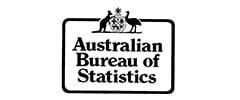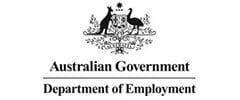During our Coaching Café this week we continue our conversations around getting ready for annual performance reviews. Over the past couple of weeks, we’ve looked at key tips. In particular, a framework to set those conversations up for success. This week we turn our attention to the trickier performance conversations.
Listen to the Coaching Cafe podcasts
We hear your frustrations
We were recently asked by a frustrated manager:
‘What do you do about the people who don’t have goals? Don’t really care? Aren’t prepared or are just working out to retirement? You have to write something on the performance review form!’
This is where coaching really comes in handy. Furthermore, at Open Door we want you to get on the front foot. Therefore, in our Coaching Café this week Natalie and our Resident HR Specialist, Paula-Jones Hunt turn their attention to the trickier conversations and how a coaching approach can work.
Why are the conversations so important?
This research from Gallup sums up why these conversations are so important. Employees are more likely to be engaged. And a strengths-based approach assists in overcoming the flaws of more traditional approaches of talking and telling.
Paula talks about things that we have control over in an organisation and things that we don’t. An employee could be disengaged with the organisation, but respect their manager. So the one thing that managers do have control over is the really great conversations they are having with their teams. These conversations have an impact on the engagement scores we see above. Furthermore, the annual performance review is a chance to reinforce these conversations.
But what makes performance conversations really tricky?
There are two sides of the coin to this question.
From the manager’s perspective, it is not unusual to find that an employee is over-rating their performance. Or they are unmotivated or uninterested in setting goals. So the manager feels that they are responsible for completing the review – putting something in those boxes. Add to that, that the managers are not necessarily skilled in having quality conversations and the task just becomes more difficult.
On the other hand, it is also not unusual for an employee to have to have a performance review with a manager who ‘has no idea what they do on a day to day basis’. Or they only hear from their manager if the manager wants something. They are are not feeling valued, and maybe on top of that they are overdue for a pay-rise they believe that they are owed. These bad experiences lead to difficult conversations as well.
FREE Coaching Cafe Webinar
Every week our team of experts present “Coaching Cafe” webinar with topics for Managers, Leaders, Business Owners, and everyone who wants to be a better workplace coach, leading their teams to higher productivity, better outcomes and a happier, healthier workplace.







































